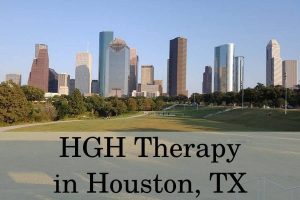Human growth hormone (HGH) is the foundation of life as this hormone is responsible for the growth and development of children and adolescents and has important metabolic functions in the body as well. It is mainly important in stimulating the development of cells.
For men and women, HGH therapy can help improve physical performance (improve lean muscle mass and lower fat mass), normalize energy levels, stimulate a better mood, boost libido and more. Therefore, therapy can help to maintain, build and repair healthy tissue in the brain and other organs and can also boost metabolism as well.
Do you need HGH therapy?
Usually, HGH is produced in the body and normally rises during childhood, peaks at puberty and declines starting from middle age and on. For children and adolescents, HGH aids in longitudinal growth by stimulating the growth of the cartilage and bone.
In adulthood, growth hormone (GH) deficiency causes are mainly rooted in the pituitary gland and hypothalamus. There are certain conditions that cause GH deficiency and may warrant synthetic HGH therapy:
- HIV-associated muscle wasting
- Genetic conditions such as Turner syndrome
- Brain damage or pituitary tumors
- Short bowel syndrome
Diagnosing GHD requires certain tests that will stimulate GH production, the most common test is the insulin tolerance test. Also, magnetic resonance imaging (MRI) might be helpful in diagnosing any type of pituitary issues (i.e. tumors present) and seeing how it responds to growth hormone.
Common symptoms of low GH levels in adults
If you experience one (or more than one) of these symptoms, it may indicate that you have growth hormone deficiency and you should contact your doctor to get a proper diagnosis.
- Increase in body fat especially around the waist
- Anxiety and depression
- Low levels of sexual function and interest
- More fatigue/tiredness
- Less lean mass (muscle)
- Less strength and stamina
- Low levels of bone density which will increase risk of fractures
- Higher levels of LDL cholesterol (or bad cholesterol) and triglycerides
- Baldness (happens in men)
- Overall decrease in quality of life (QoL)
Left untreated, growth hormone deficiency can lead to heart and cholesterol problems and even osteoporosis
How HGH therapy can help you
After starting treatment with recombinant GH injections, you will have increased energy, muscle mass and libido, will shed fat, become happier, and enhance athletic performance.
Long-term effects include improvement in heart health, controlled cholesterol levels and healthier bones which will lower the risk of encountering fractures.
Although there is no length of time that indicates how fast results are seen in people taking HGH therapy, one study showed fourteen men ages 50-70 did have an increase in leg press responsiveness after six months of treatment.
Therefore, exercise performance enhancements are seen quicker than improvements in body composition.
Possible risks you should be aware of
HGH therapy is generally safe when administered under the supervision of a doctor as prescribed. Side effects usually occur when the dosage is exceeded and can be easily eliminated by lowering the dosage. Here’re the most common side effects:
- Swelling of the arms and legs (edema) and of the hands (carpal tunnel syndrome)
- Nerve, muscle and joint pain
- Numbing and tingling of the skin
- Increase blood sugar levels
- Higher blood pressure
It is important to check with your doctor at least every four to eight weeks in order to monitor for improvement and any side effects that may occur.
If you have a history of cancer, heart disease, type 2 diabetes or even kidney problems, HGH may not be the best option for you.
Furthermore, there is also a chance of dependency which can lead to abuse with HGH therapy,therefore it is best to discuss with your doctor before taking any forms of GH.
Get a free consultation with our medical expert for any questions about hormone replacement therapy


